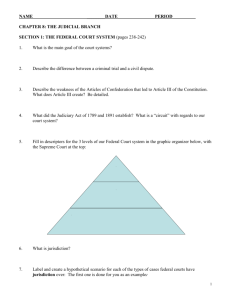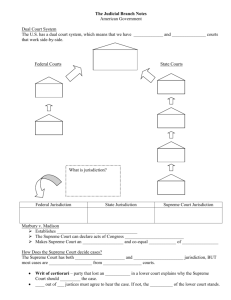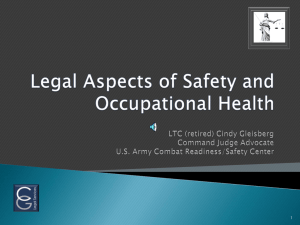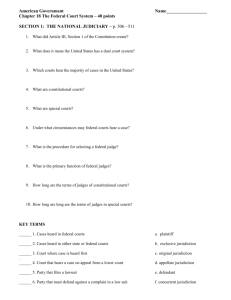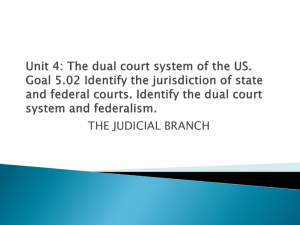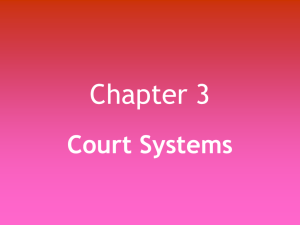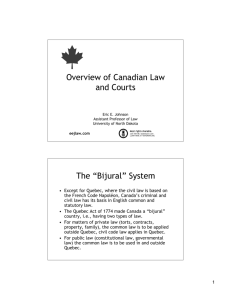The Federal Court System
advertisement
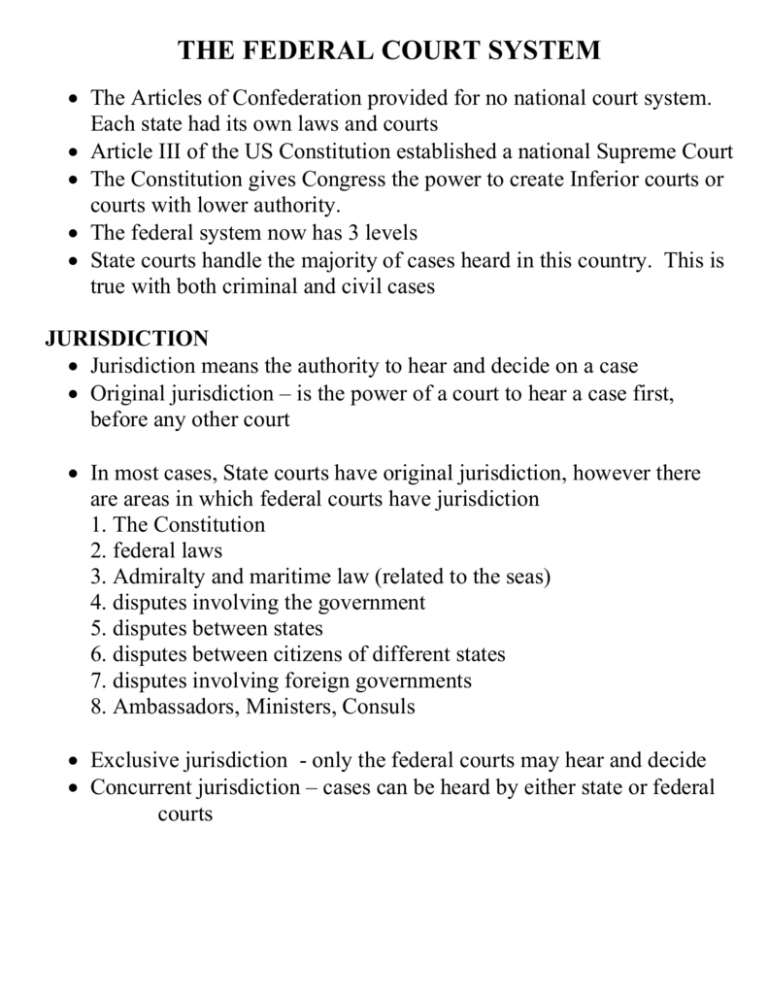
THE FEDERAL COURT SYSTEM The Articles of Confederation provided for no national court system. Each state had its own laws and courts Article III of the US Constitution established a national Supreme Court The Constitution gives Congress the power to create Inferior courts or courts with lower authority. The federal system now has 3 levels State courts handle the majority of cases heard in this country. This is true with both criminal and civil cases JURISDICTION Jurisdiction means the authority to hear and decide on a case Original jurisdiction – is the power of a court to hear a case first, before any other court In most cases, State courts have original jurisdiction, however there are areas in which federal courts have jurisdiction 1. The Constitution 2. federal laws 3. Admiralty and maritime law (related to the seas) 4. disputes involving the government 5. disputes between states 6. disputes between citizens of different states 7. disputes involving foreign governments 8. Ambassadors, Ministers, Consuls Exclusive jurisdiction - only the federal courts may hear and decide Concurrent jurisdiction – cases can be heard by either state or federal courts THE NORTH CAROLINA COURT SYSTEM: - from lowest to highest Magistrates – (judicial officer ) there are 654 Magistrates in NC; 2 yr term - have original jurisdiction in certain misdemeanor cases usually when there is an admission of guilt; can issue warrants; set bail; worthless checks, small claims $4,000 and less; juvenile’s misdemeanors NC District Court – There is at least one district court located in each of the 100 counties - 164 judges elected in non-partisan elections for 4 yr terms; 39 districts - Original jurisdiction in all misdemeanor cases, juvenile cases, probable cause hearings, civil cases up to $10,000 - NO JURY NC Superior Court – 70 judges elected for 8 years - 46 districts; judges rotate every 6 mos. in their division - Original jurisdiction – felony criminal cases, civil cases over $10,000, Also takes appeals from District Court - Trial by 12 member jury – jury often waived in civil cases The NC Court of Appeals – 12 judges that are elected for eight year term - sit in panels of 3 to hear and decide cases - meets in Raleigh - considers and decides on cases appealed from District and Superior Courts - No original jurisdiction The NC Supreme Court – 7 Justices (1 Chief and 6 Associates) - elected for 8 year terms - decides questions of law presented in civil and criminal cases appealed from lower courts - no witnesses or juries - appeals from the NC Supreme Court go to the US Supreme Court
